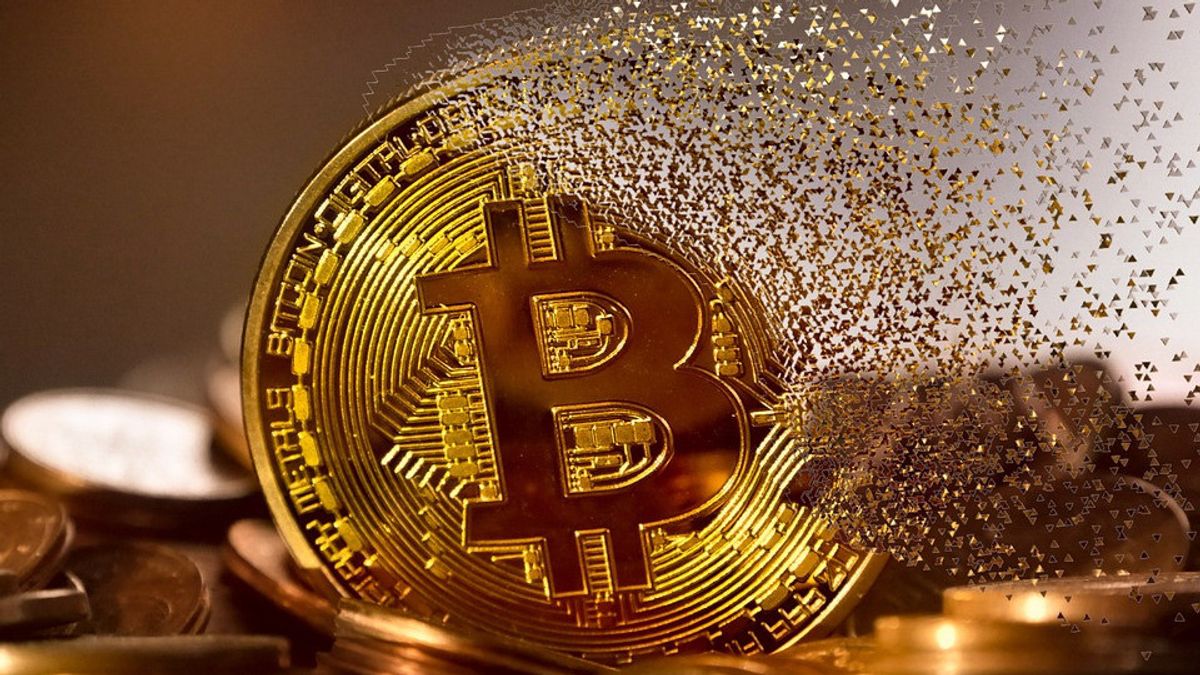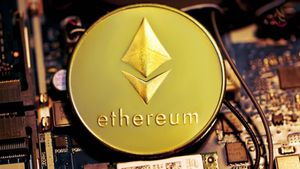JAKARTA - According to a new study published today in the journal Scientific Reports, the environmental and social damage that Bitcoin inflicts on the world is comparable to well-known polluting industries such as beef production and crude oil that is burned as gasoline.
The research found that every $1 in Bitcoin market value generates an average of 35 cents in global climate damage between 2016 and 2021.
By comparison, gasoline makes 41 cents, and beef production is responsible for 33 cents in climate damage. In terms of economic value and environmental impact, Bitcoin is sometimes compared, albeit controversially, to gold. This new study finds that the climate damage from Bitcoin is actually 8.75 times greater than that of gold.
"When compared to gold mining, Bitcoin's share of climate damage is almost an order of magnitude higher," Andrew Goodkind, study co-author and assistant professor of economics at the University of New Mexico, told The Verge via email.
To estimate the dollar cost of future damage to the planet from climate change, the researchers used key metrics used in policy making.
In policy, researchers look at the "social costs of carbon," which consider things like losses in agricultural and labor productivity and the devastation caused by rising sea levels.
The researchers used climate models and other data to calculate how much damage, in US dollars, might occur for every additional tonne of carbon dioxide that enters the atmosphere.
The Bitcoin network is known to consume as much electricity as a small country uses every year. Most of the energy is used to verify transactions and “mine” new coins. The study's authors estimate the grid's overall electricity consumption and the planet-warming carbon dioxide emissions it produces as a result.
Then they apply estimates of the social costs of carbon to translate those CO2 emissions into dollar losses. At the social cost of carbon at $100 per tonne, the researchers found that climate damage averaged $3.088 for each coin mined. Between 2016 and 2021, researchers estimate that Bitcoin's global climate damage total is $12 billion.
VOIR éGALEMENT:
The caveat is that much debate is still swirling about what the real social costs per tonne of carbon are. Using $100 per tonne as their basis, the researchers took a sort of middle-of-the-road approach.
The US government, for example, places the social cost of carbon at USD 51 per tonne when drafting regulations for pollution. However, this figure is considered too low by many experts. Research published in the journal Nature the previous month put the cost at USD 185 per tonne.
Regardless, the researchers show that Bitcoin's climate breakdown grows over time, using either low or high estimates for the social cost of carbon. Their findings come after another attempt to quantify how much impact Bitcoin mining has on the planet.
Energy-hungry cryptocurrencies are responsible for as much planet-warming pollution each year as all diesel fuel used on the nation's rail lines, according to a September report from the White House Office of Science and Technology Policy.
Another September report from environmental groups Earthjustice and the Sierra Club came to the same conclusion, that crypto mining pumps out about 27.4 million tonnes of CO2 a year, which is three times as much pollution from the largest coal plant in the US in 2021.
With increasing pressure to clean up the crypto industry, Bitcoin is now an outlier in terms of its environmental impact. Its closest rival, Ethereum, recently completed a major software update to drastically reduce its energy consumption in a highly anticipated event called The Merge.
Goodkind points to it as an example of a potential solution to make cryptocurrencies more sustainable. If Bitcoin makes a similar update, "its climate damage is expected in this work, likely to be ignored," the study said.
The English, Chinese, Japanese, Arabic, and French versions are automatically generated by the AI. So there may still be inaccuracies in translating, please always see Indonesian as our main language. (system supported by DigitalSiber.id)


















